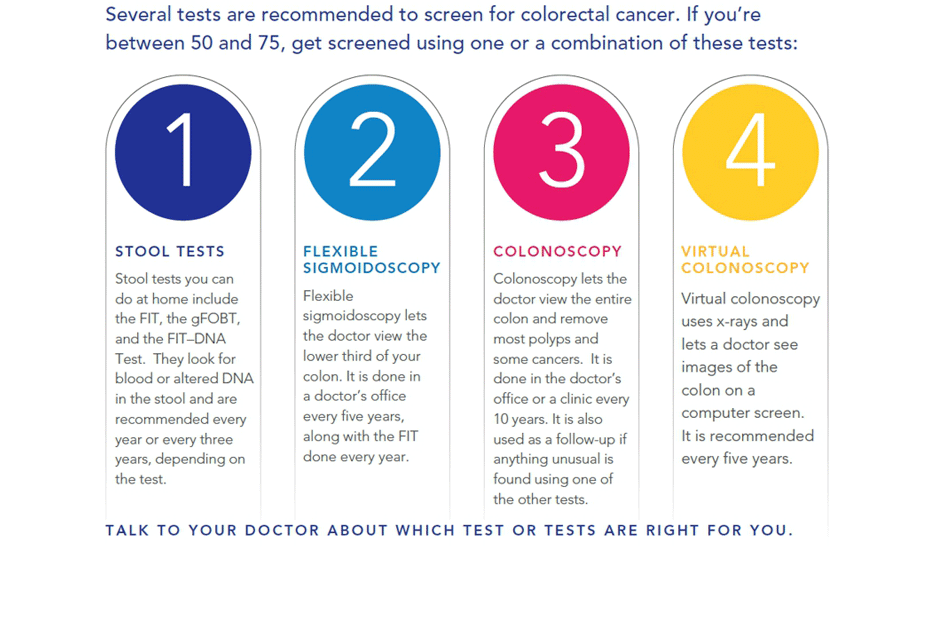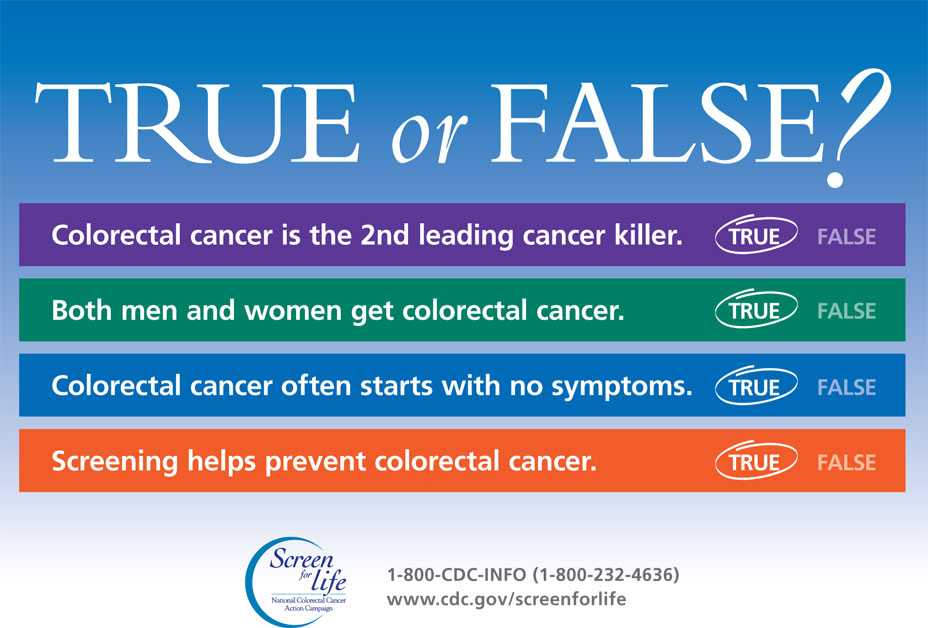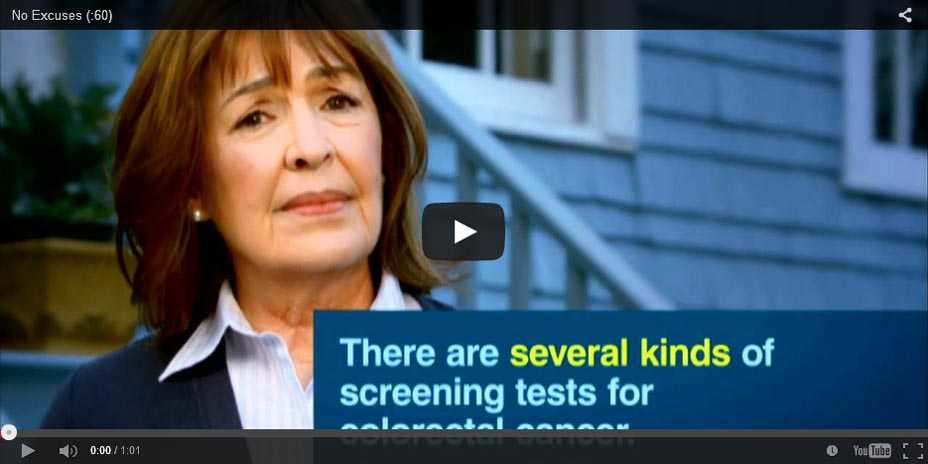Colorectal Cancer
[koh-luh-rek-tl] [kan-ser]

Of cancers affecting both men and women, colorectal cancer (cancer of the colon and rectum) is the second leading cancer killer in the United States, but it doesn’t have to be. Screening can find precancerous polyps—abnormal growths in the colon or rectum—so they can be removed before turning into cancer. Screening also helps find colorectal cancer at an early stage, when treatment often leads to a cure. If you are 50 years old or older, get screened now.
Quiz
Key Facts
- The best way to reduce your colorectal cancer risk is to get screened regularly beginning at age 50.
- About 1 in 3 adults (23 million) between 50 and 75 years old is not getting screened as recommended.
- Colorectal cancer affects men and women of all racial and ethnic groups.
- Colorectal polyps and colorectal cancer don’t always cause symptoms, especially at first.
Media
Have You Been Tested for Colorectal Cancer? Podcast
Prevention Tips
- If you’re 50 years old or older, talk to your doctor about getting screened.
- If you’re younger than 50 years old but may have a higher risk of colorectal cancer, ask your doctor if you should start screening before age 50.
- Learn your family history of cancer and tell your doctor if you think you may have a higher risk.
- Don’t smoke.
- Get enough physical activity and limit your alcohol consumption.
- Talk to your doctor if you have blood in or on your stool (bowel movement); stomach pain, aches, or cramps that don’t go away; or are losing weight and you don’t know why.
- Page last reviewed: March 2, 2017
- Page last updated: March 2, 2017
- Content source:


 ShareCompartir
ShareCompartir







